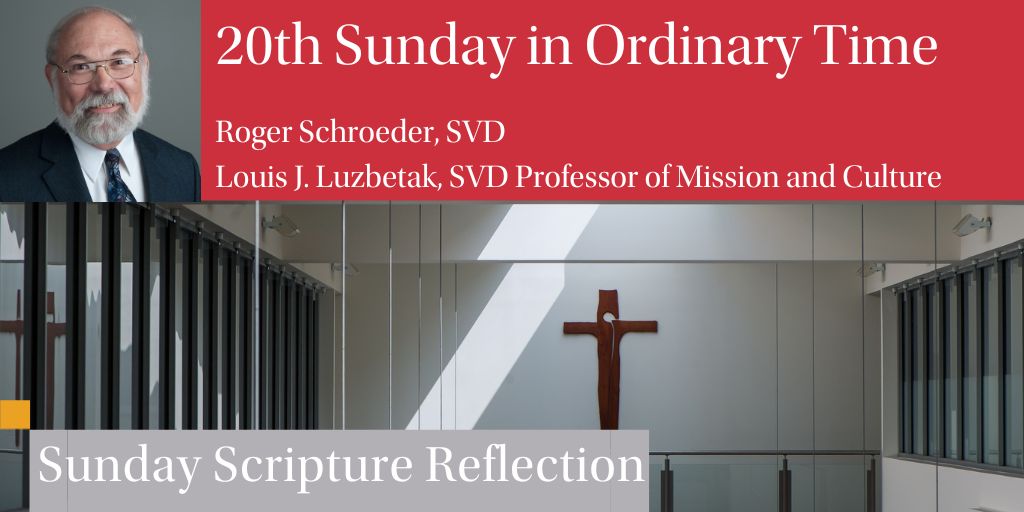
Readings:
Prv 9:1-6
Ps 34:2-3, 4-5, 6-7
Eph 5:15-20
Jn 6:51-58
For the fourth consecutive Sunday, we are reading from Chapter 6 of John’s gospel, which we will finish next Sunday. The chapter began with the feeding of the multitude and we then heard Jesus proclaim several times “I AM bread of life” (Jn 6:35, 48). The portion of the chapter that we hear today begins with: “I am the living bread that came down from heaven; whoever eats this bread will live forever; and the bread that I will give is my flesh for the life of the world” (51). The religious authorities (“Jews”) then began to quarrel among themselves regarding how can Jesus give his flesh to be eaten (52). While this question would naturally arise in a regular secular context, the original Christian listeners to this passage of John would probably know that Jesus is talking about the Eucharist. The three synoptic gospels include the institution of the Eucharist within the Last Supper, while John points to the deep significance, not necessarily the institution, of the Eucharist here in Chapter 6. The verses today are part of a section of the chapter written in the format of a homily (6:30-59). These are words for a faith community of the followers of the Way.
The first reading from Proverbs offers another scenario of food and drink in which Wisdom has “spread her table” (Prov 9:2b) with food and wine. The promise of this Wisdom feast and the gospel references to the manna supplied in the desert (Jn 6:31, 49, 58) during the Exodus provide some background for the Eucharist. Jesus proclaimed, “Just as the living Father sent me and I have life because of the Father, so also the one who feeds on me will have life because of me” (Jn 6:57). The second reading from Ephesians continues with the theme of the Wisdom through a series of negatives and positives: do not be foolish but wise (Eph 5:15-16), do not be ignorant but understanding (17); do not get drunk but be filled (18-21). Through all of this, we are to follow and walk according to “the will of the Lord” (17). And the Responsorial Psalm reinforces the imagery of food and drink: “Taste and see the goodness of the Lord” (cf. Ps 34:8).
How are we to follow the Way and will of God in and through the Eucharist?
I heard the story of a bishop who met before Mass with a group of second-graders before their first communion. In response to the bishop’s question, “What is the meaning of the Eucharist?”, an enthusiastic girl waved her hand and proudly stated, “the EXIT sign.” The bishop was consternated and wondered if the child had missed some catechesis classes. However, he then asked for a further explanation. The little girl, just as confidently stated, “We receive the Body of Christ in the Eucharist, to become the Body of Christ when we leave under the EXIT sign.” The bishop nodded in approval. She got it.
The living bread of Jesus offers us the grace of nourishment, guidance, and endurance to be more transformed both individually and communally into the Body of Christ now on earth and eternally. As we are united with Christ in the Eucharist, we are to be dedicated to proclaim, serve and witness to the reign of God. Fully—with our head (knowledge), heart (love), and hands (action).
Roger Schroeder, SVD
Louis J. Luzbetak, SVD Professor of Mission and Culture
